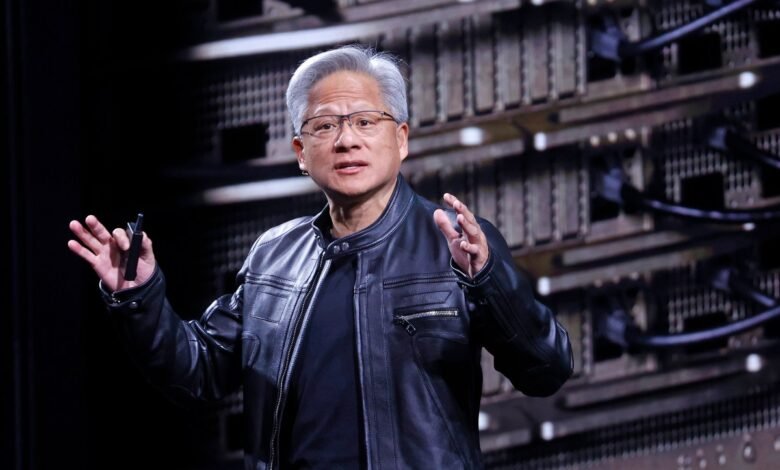China Bans Tech Firms from Buying Nvidia AI Chips

▼ Summary
– China’s internet regulator has banned domestic tech companies from purchasing Nvidia AI chips, as reported by the Financial Times.
– The Cyberspace Administration of China specifically instructed companies like ByteDance and Alibaba to stop testing and ordering Nvidia’s RTX Pro 6000D server designed for the Chinese market.
– This ban is expected to significantly impact China’s tech ecosystem, as Nvidia is the global market leader with highly advanced chips despite local alternatives.
– Nvidia’s CEO Jensen Huang expressed disappointment but patience, stating the company will remain supportive of the Chinese government and companies as desired.
– Previous US restrictions and revenue losses highlight Nvidia’s challenges in the Chinese market, with an $8 billion revenue loss cited in Q2 alone from not selling H20 AI chips there.
China’s technology sector faces a significant shift following a new government directive that prohibits domestic tech firms from purchasing Nvidia’s artificial intelligence chips. This move, enacted by the Cyberspace Administration of China, marks a decisive step in the nation’s broader strategy to reduce dependence on foreign semiconductor technology.
According to initial reports, the regulatory body instructed leading companies including ByteDance and Alibaba to immediately halt testing and orders for Nvidia’s RTX Pro 6000D server, a product specifically engineered for the Chinese market. This formal ban follows earlier advisories in late August, when authorities began discouraging purchases of Nvidia hardware in favor of domestically produced alternatives.
The restriction is expected to have considerable repercussions across China’s tech industry. While local manufacturers like Huawei and Alibaba develop their own AI chips, Nvidia remains the undisputed global leader in advanced AI processors, and its exclusion may slow development in areas requiring cutting-edge computational power.
Nvidia CEO Jensen Huang addressed the situation during a recent press conference, stating, “We can only be in service of a market if a country wants us to. I’m disappointed with what I see, but they have larger agendas to work out between China and the United States. I’m patient about it. We’ll continue to be supportive of the Chinese government and Chinese companies as they wish.”
This development is the latest in a series of trade and technology tensions between the U.S. and China. Earlier this year, the Trump administration imposed licensing requirements on semiconductor companies, including Nvidia, limiting their ability to sell AI chips in China. Although those restrictions were temporarily relaxed in July, with the White House later allowing sales under the condition that the U.S. government receive 15% of the revenue, Nvidia reported no significant sales under that arrangement as of its most recent earnings.
The company had previously projected an $8 billion revenue loss in the second quarter alone due to its limited access to the Chinese market, and in June, it formally excluded China from its future profit forecasts. The latest ban reinforces the challenging and unpredictable environment facing global tech suppliers operating between these two economic superpowers.
(Source: TechCrunch)





